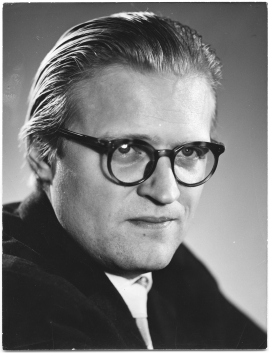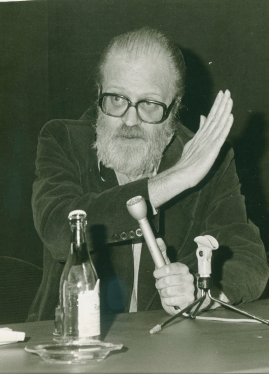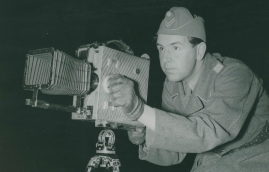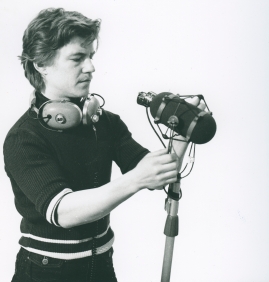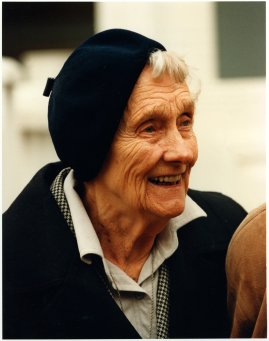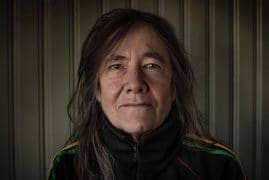Olle Hellbom
Table of contents
- Basic facts
- Links and resources
- Biography
- Awards
- Films
- Original work
- Soundtrack listing
- Groups
Basic facts
Media (2)
| Director | |
|---|---|
| Screenplay |
|
| Show all films | |
| Awards |
|
Biography
Swedish director. Born in Mörkö, Stockholm. Dead in Stockholm.-Olle Hellbom is best known for his film versions of books by Astrid Lindgren, 17 in total, made between the years of 1957 and 1981. But he began his career as a screenwriter and documentary filmmaker, and from the early 1950s onwards made numerous documentaries on various subjects including the rise of the labour and cooperative movements, the history of Swedish Railways and the general strike of 1909. He made an art film about cubist painting, and his film based around the satirical drawings...
Biography
Swedish director. Born in Mörkö, Stockholm. Dead in Stockholm.
-
Olle Hellbom is best known for his film versions of books by Astrid Lindgren, 17 in total, made between the years of 1957 and 1981. But he began his career as a screenwriter and documentary filmmaker, and from the early 1950s onwards made numerous documentaries on various subjects including the rise of the labour and cooperative movements, the history of Swedish Railways and the general strike of 1909. He made an art film about cubist painting, and his film based around the satirical drawings of Oskar Andersson (signature OA) was a portrayal of the dreadful social conditions in Stockholm at the dawn of the 20th century. As a historical footnote one can add that his 15 minuter med Evert Taube ('15 Minutes with Evert Taube', 1954), in which Taube sang some of his songs, was shown as part of Sweden's first ever public television broadcast, Sandrews TV Week in 1954. In the early 1960s Hellbom also made a number of films about aid work in India.
His feature debut came with the film version of Lindgren's The Master Detective Lives Dangerously (Mästerdetektiven lever farligt, 1957), a film which still holds its own today. After this he took on the theme of youth in peril - what he called a "burning subject of the day": Blackjackets (Raggare!, 1959), the realistic style of which attracted favourable notices. He then resumed his partnership with Astrid Lindgren, one which was to last for more than 20 years.
His two films about the children from Bullerby (1960 and 1961) were made direct for the cinema, after which he interwove television series and feature films, the latter often made up of scenes from the television series joined together, but also based on entirely newly written screenplays.
With the television series Vi på Saltkråkan ('Us Islanders on Saltkråkan') and the films that followed, Astrid Lindgren's literary world reached out to a completely new and mostly very young audience, many of whom had not acquired the reading habit. They spawned characters and performances which etched themselves forever onto the Swedish collective memory: Tjorven, Stina (whose most famous lines can be quoted by most Swedes of a certain age) and "Uncle Melker". The same goes for Pippi Longstocking and her friends. Then along came the little mischief Emil in Lönneberga, with all his naughtiness and a wildly shouting yet always forgiving father (Allan Edwall in an unforgettable role). Karlsson on the Roof (Världens bästa Karlsson, 1974) was less successful, but was followed by an artistic film which more than made up for it, The Brothers Lionheart (Bröderna Lejonhjärta, 1977), a work which dared to tackle death and evil in a delightfully poetic way. In autumn 1978 it earned Olle Hellbom a Swedish Guldbagge award "for his capacity for renewal after many years as a director of children's films." It was also the first ever Swedish film to be distributed in China. Hellbom ended his directing career with a new film version of Rasmus på luffen ('Rasmus on the Road', 1981) in which Allan Edwall plays a splendid role as the tramp Paradis-Oskar. Erik Lindgren as Rasmus was also a notable success.
Hellbom's early film versions of books by Astrid Lindgren met with a mixed critical reception, albeit with an admission that children in the audience seemed to enjoy them and that was the main thing. But he always drew praise for his ability to handle child actors, not least his ability to find the most suitable children for the parts. His sensitive and accurate portrayal of various rural environments, often in historical settings, also drew considerable acclaim. Olle Hellbom was indeed a force for renewal in Swedish children's film.
Gunder Andersson (2011)
(translated by Derek Jones)
Awards
| The Guldbagge Award | Stockholm | 1978 | Best Director | (för sin förmåga till förnyelse efter mångårig insats som barnfilmsregissör) | |
|---|---|---|---|---|---|
| Swedish Film Society Prize | Stockholm | 1965 | (hedersdiplom) | ||
| Stockholm | 1959 | (plakett) |
